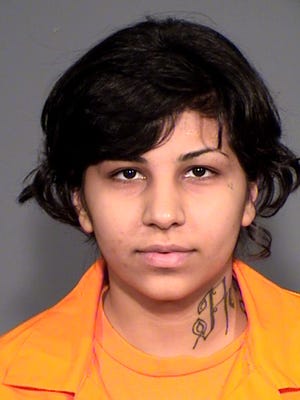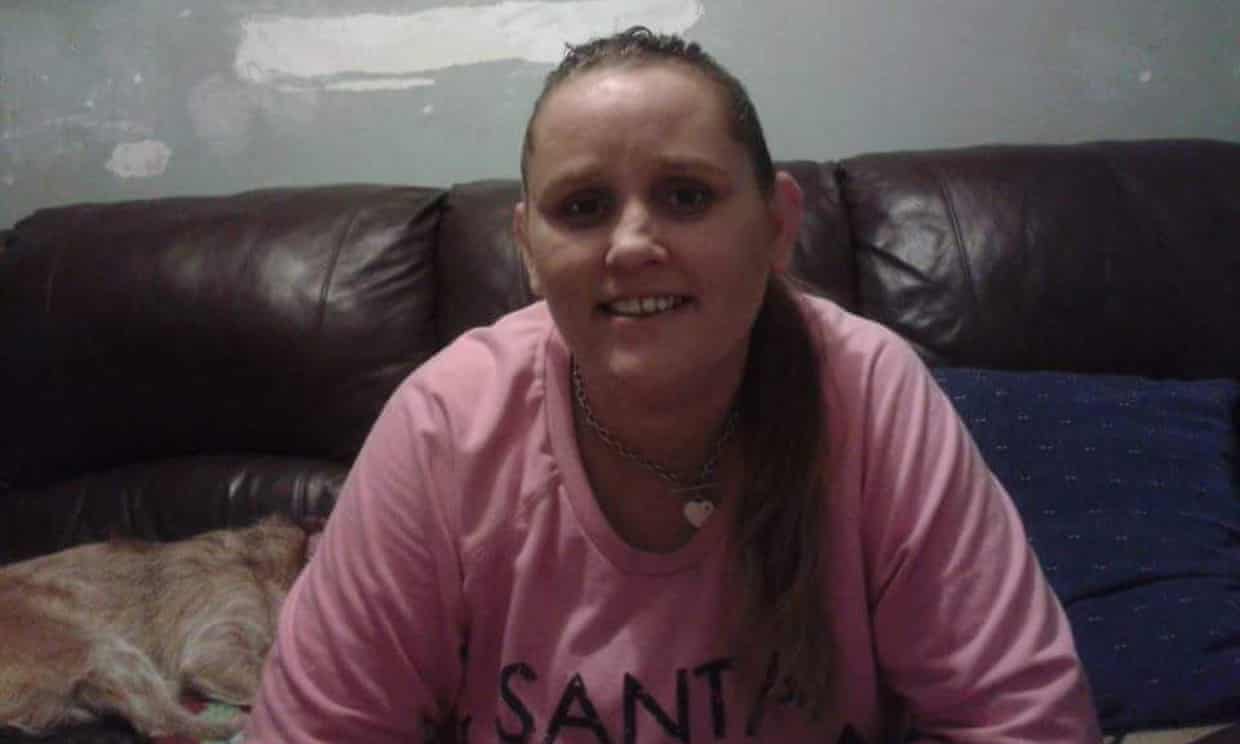
Mariam Abdullah
Barely eighteen years old, Mariam Abdullah died, July 19th, while in solitary confinement at the Perryville Prison in Arizona. Rebecca Maher, 36 years old, died, July 19th, while in police custody in the Maitland police station, in New South Wales, in Australia. Though the two never met, the circumstances and date of their deaths joins them in a tragic tale of State negligence and refusal. Both women deserved better, and in both instances, we all share the shame of their deaths and the manner of their deaths, for both of them needed help, and the State refused. Both of them were meant to be protected by State law and policy, and yet, on July 19th, both Mariam Abdullah and Rebecca Maher died … or were killed.
In June 2014, Mariam Abdullah, 16 years old, was arrested. After a year in the Estrella Jail, where juveniles charged with adult crimes are `kept’, she agreed to a plea deal that would result in three years imprisonment. From the moment she entered Estrella, Abdullah was in and out of trouble, which meant in and out of solitary confinement. According to her attorneys and to advocates who met with her, her mental health deteriorated perceptibly. Then she turned eighteen, and was moved to Perryville, and again to isolation. Six weeks later, she wrapped a bed sheet around her neck and strangled herself to death.
On numerous occasions, Mariam Abdullah asked, both in writing and in conversation, to meet with mental health staff. She knew she was [a] having problems and [b] deteriorating. She said so. Other than her lawyers and supporters, no one listened. Prison Law Office attorney Corene Kendrick wrote to Arizona’s Attorney General with concerns about Mariam Abdullah’s situation, noting that the State’s abuse of Abdullah was in violation of earlier court orders, the law, and human decency. Kendrick never received never received a response. Kendrick noted, “She [Mariam Abdullah] just seemed very sad and very isolated [and] was clearly traumatized when I talked to her. She’s a child, and she was being held in isolation conditions worse than what the adults were being held in — not that it’s okay for anyone to be held in isolation, but all of the best practices say to stop using isolation on children.”
Peggy Plews, of Arizona Prison Watch, added, “She was no angel — she’s the first to admit that. [But] she was a sweet kid, wanted to be a firefighter and save other people someday. Instead, we just threw her away. We all broke that kid long before she killed herself.”
Rebecca Maher, Aboriginal, mother of four, was walking home drunk when the police picked her up, ostensibly for her own good, and threw her into a cell, a little after midnight. At 6 am, she was “found dead.” Her death and the last hours of her life are shrouded in confusion and controversy. In New South Wales, if an Aboriginal person is arrested, the police are supposed to use the Custody Notification Service, which immediately contacts the Aboriginal Legal Service (ALS). This system is a model. No Aboriginal person has died in police custody since 2000 … until Rebecca Maher. But Rebecca Maher, though in police custody, was never arrested. She was thrown into the cell because she was drunk. The police were “protecting” her from herself, and that is the problem. Many, such as Gary Oliver of the ALS, believe that if the police had contacted them, “there may have been a different outcome. Fundamentally this is a process that has failed because a police officer has not followed a procedure.”
Family friend Kathy Malera-Bandjalan asks, “How do you take someone into custody who’s legally done nothing wrong, then detain them in a cell then they’re dead in four hours. Rebecca’s death is not going to be in vain.” According to Kathy Malera-Bandjalan, the family was never notified of Rebecca Maher’s detention and was notified of her death many hours later.
What happened to Mariam Abdullah and Rebecca Maher? Absolutely nothing, and that’s what killed them. Arizona has specific policies, forced upon it by court decisions that should have ensured Mariam Abdullah’s survival and well being while in custody. Arizona refused to follow its own policies. New South Wales has specific policies that should have ensured Rebecca Maher’s survival and well being while in custody. New South Wales refused to follow its own policies. It wasn’t one staff member here or one there. It was the State that decreed, and decrees that what happens in custody stays in custody, and whatever vulnerable woman happens to fall into custody can expect to suffer and die in custody. That’s the rule of law when the custodians are told they have no custodial responsibilities to care for their residents. So, rest in peace Mariam Abdullah; rest in peace Rebecca Maher. You deserved better. We all do. Instead, we all broke you and just threw you away.

Rebecca Maher